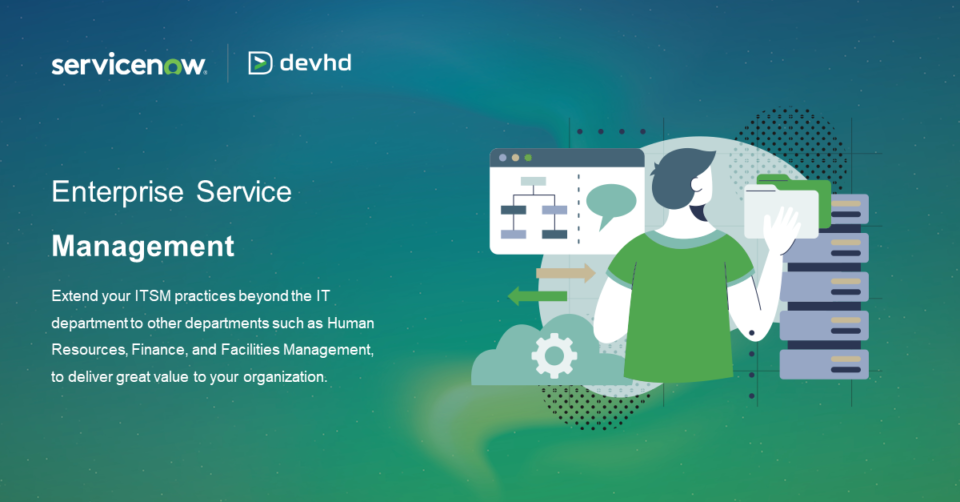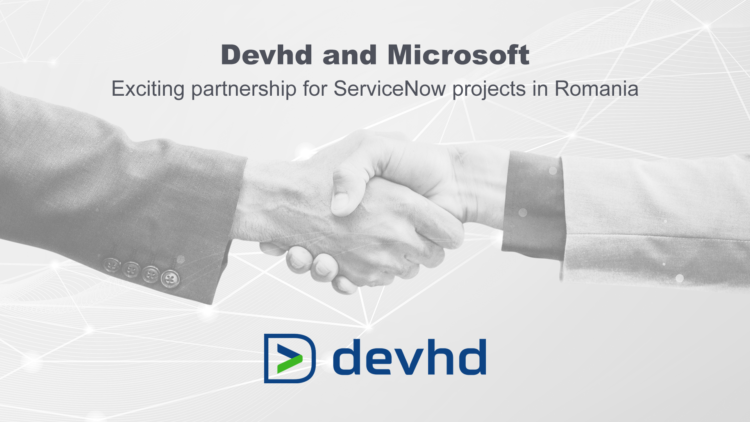Bringing an event to life is always an adventure. From initial planning to the final applause, it’s full of surprises and moments of growth. The "Transform Your Business with Actionable AI" event by Devhd, co-hosted last week on November 21st, with our partners ServiceNow and ANIS Romania, was no exception.
At Devhd, we’re not event planners—we’re a Premier ServiceNow Partner focused on helping businesses get the most out of their ServiceNow platform. When we noticed the growing interest in AI and GenAI capabilities, we decided to host a live gathering where people in the region could learn, share ideas, and see these technologies in action.
With over a decade of experience and a team holding 70+ certifications and accreditations, including two Certified Technical Architects, we at Devhd have also achieved four ServiceNow Product Line Achievements—recognition that reflects the deployments with certified professionals, and projects we’ve successfully delivered in a specific product line. This same focus on quality has earned us a CSAT score of 4.9 out of 5 from our clients, both nationally and internationally.
Organizing this first large-scale conference was a new experience for us. While it wasn’t without challenges, it was worth the effort. We’re proud of what we accomplished and grateful for the chance to connect with professionals interested in these important topics.
Held at the SkyHub Center in Bucharest, the conference brought together professionals curious about how ServiceNow’s AI and GenAI capabilities are transforming business processes.
When snow and logistics meet determination
Events rarely go as planned, and this one kept us on our toes. Two days before the event, our guest speaker from ServiceNow (Dale Cheeseman) had to cancel unexpectedly. Fortunately, Daniel Bozori, Solution Consultant at ServiceNow, stepped in to save the day.
But that wasn’t all. The two Devhd speakers had to travel from different parts of Romania—Iași and Brașov. On the night before the event, a snowstorm hit both regions. So, guess what? The flight from Iași was canceled, prompting a last-minute, seven-hour car journey to Bucharest. Hiccup after hiccup. In Brașov, fallen trees on the railway delayed the train, requiring last-minute changes to the speaker’s travel plans.
Ultimately, one speaker couldn’t arrive on time, but Daniel stepped up again, taking over part of the presentation planned for Claudiu and teaming up with our Eduard Nițoi, Solution Consultant at Devhd. The teamwork and resilience of both the Devhd and ServiceNow teams ensured a smooth event for attendees, despite the challenges.
Insights from the event
One of the key highlights was a deeper look into how ServiceNow serves as a comprehensive AI platform for business transformation. Its unified data model and ability to integrate diverse systems make it a powerful solution for businesses of all sizes.
Daniel and Eduard showcased how Now Assist, ServiceNow’s GenAI-powered capabilities, accelerate productivity across various roles and solutions, like IT Service Management, Customer Service Management, and HR Service Delivery—enabling agents to resolve issues faster with smarter service delivery, while empowering developers to configure and customize applications more efficiently. The hands-on demos highlighted how the NOW Platform helps organizations rapidly turn AI investments into actionable business value, achieving impactful results in days, not months.
ServiceNow is trusted by the largest and most complex enterprises, with 80% of the Fortune 500 having chosen the platform. It offers a scalable, intelligent, and unified solution for tackling modern business challenges.
Lessons learned and moving forward
While the event went well, there's always room for improvement. Though the audience was smaller than anticipated, it led to more focused discussions with attendees who were genuinely interested in the topics. Moving forward, we will refine our approach to invitations to better target those who will benefit most from the content.
Additionally, several factors beyond our control, including weather and competing events, influenced attendance. This reminded us of the importance of contingency planning and the value of flexibility in execution.
We are grateful for the collaboration with ServiceNow and ANIS Romania, for the speakers, and for the opportunity to engage with attendees during the networking dinner. The experience has given us valuable lessons to apply to future events.
What’s Next?
Given the interest in last week’s topics, we’re considering a webinar to ensure more people can benefit from the insights shared about AI and GenAI. Stay tuned for updates!
Some of you may know that earlier this year, we also co-hosted an event with ServiceNow on CMDB Best Practices—helping organizations build and maintain a healthy Configuration Management Database while leveraging ServiceNow's powerful tools. We're committed to delivering value across a range of topics and would love to hear from you:
What ServiceNow topics would bring the most value to your organization or role? Or, would you want to hear next from us? You can send us your ideas at contact@dev-hd.com. Your feedback will help us design future events tailored to your needs.



















